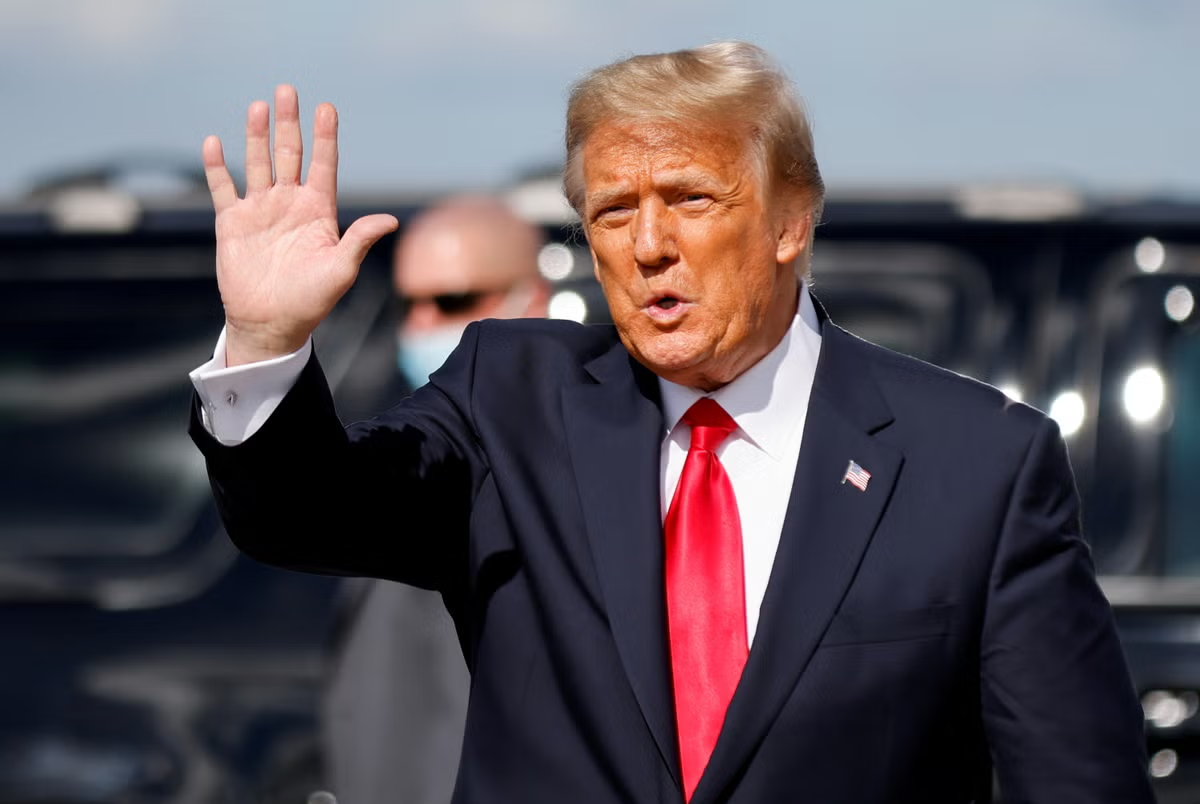In a bold policy declaration, former President Donald Trump made waves on Thursday when he vowed that, if re-elected in November 2024, no state would be allowed to ban gas-powered cars or trucks. Trump’s pledge directly targets states like California that have enacted legislation to phase out internal combustion engine vehicles in favor of electric vehicles (EVs). His proposal, hailed by many supporters of free-market capitalism, is seen as a crucial step in preserving consumer choice, protecting industries, and maintaining economic balance.
Defending Consumer Choice
Trump’s announcement is a reaffirmation of the core principles of free market capitalism, which holds that individuals—not governments—should decide what products they buy and use. In making his case, Trump argued that banning gas-powered cars would limit consumer freedom and stifle innovation. Under a free market, consumers can choose products based on their preferences and financial circumstances, enabling competition to drive improvements across industries.
While electric vehicles have seen increased popularity, millions of Americans still prefer gas-powered cars for their convenience, lower upfront costs, and existing infrastructure. By eliminating the option of purchasing gasoline-powered vehicles, states like California are making decisions for consumers rather than letting the market evolve organically. Trump’s proposal ensures that both EVs and traditional vehicles will coexist, with consumers dictating which technology succeeds through their purchasing decisions.
Protecting Jobs and Industries
One of Trump’s strongest arguments for opposing bans on gas-powered vehicles is the potential damage such policies could inflict on America’s automotive and energy sectors. These industries provide millions of well-paying jobs and are essential to local economies across the country. If states were to phase out internal combustion engine vehicles, entire segments of the workforce—from manufacturing to auto mechanics—could be negatively impacted.
The auto industry, including companies that produce gas-powered cars, is an essential pillar of American manufacturing. According to industry analysts, eliminating gas-powered vehicles would lead to plant closures, job losses, and economic disruption. In contrast, allowing gas-powered cars to thrive alongside EVs would provide time for industries to adjust to changing technologies without causing economic upheaval.
Additionally, many Americans, especially those in rural areas, rely on gas-powered vehicles for transportation. EV infrastructure is still in its infancy in many parts of the country, making gas-powered vehicles essential for millions of Americans to continue their daily lives. Trump’s policy ensures that Americans won’t be forced into EV adoption before the infrastructure is ready.
Ensuring Energy Independence
Another key benefit of Trump’s approach is its protection of America’s energy independence. By allowing gas-powered vehicles to remain in circulation, the United States can continue to utilize its vast domestic energy resources, including oil and natural gas. Reducing the nation’s reliance on gasoline too quickly could lead to increased energy dependence on foreign countries, some of which have authoritarian governments.
For decades, the U.S. has worked toward achieving energy independence, and the gas-powered vehicle market is a significant contributor to that goal. Rapidly transitioning away from gasoline to electric vehicles—particularly without sufficient domestic battery production and energy sources—could shift the U.S. back to reliance on overseas supply chains, particularly those controlled by nations like China. By opposing state-level bans on gas-powered vehicles, Trump’s policy would help maintain America’s energy security while the EV market matures.
Encouraging Innovation Through Competition
A ban on gas-powered vehicles could lead to unintended consequences for innovation. In a free-market economy, competition is the primary driver of technological advances. The pressure for companies to outdo one another leads to breakthroughs that benefit everyone. If gas-powered vehicles are banned prematurely, the competitive dynamic between gasoline and electric vehicle technologies could diminish, potentially stalling advancements in both fields.
By allowing gas-powered cars to remain an option, manufacturers will continue to innovate in areas such as fuel efficiency, emissions reductions, and hybrid technologies. This competition could ultimately lead to greener technologies across all forms of vehicles—gas, electric, and hybrid—benefiting the environment and consumers alike. In this sense, Trump’s proposal aligns with the free market’s ability to encourage technological progress in a way that government mandates might stifle.
Free Markets Over Government Mandates
Trump’s stance also underscores a broader philosophical debate: Should government dictate market choices, or should consumers be allowed to decide? In his view, the government should not interfere in determining what cars Americans can drive. He has repeatedly criticized state-level policies that he views as government overreach, arguing that such mandates undermine the principles of free enterprise.
Trump’s promise to prevent state bans on gas-powered vehicles is not just about car ownership; it’s about reaffirming the importance of free market principles in determining the direction of the economy. By allowing gas-powered cars to coexist with electric vehicles, Trump is championing an environment where innovation and consumer preference—rather than government mandates—dictate the future of transportation.
Conclusion: A Boost for Free Market Capitalism
Donald Trump’s commitment to preserving gas-powered vehicles is a win for free-market capitalism. By ensuring consumer choice, protecting jobs, maintaining energy independence, and fostering innovation, his policy allows the market to determine the best path forward, rather than imposing top-down government mandates. In a country as diverse as the United States, this approach provides flexibility for consumers and industries alike, letting individuals and businesses make decisions that best suit their needs.
As the 2024 presidential election approaches, Trump’s stance on gas-powered vehicles could resonate with voters who value freedom, competition, and economic growth. While the future of transportation will undoubtedly include electric vehicles, Trump’s policy ensures that Americans won’t be forced into the transition before they are ready. Instead, they will have the freedom to choose—something that free-market capitalism has always championed.

